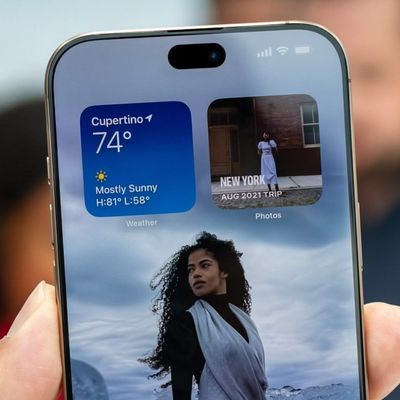GT Advanced Technologies, Apple's sapphire partner, may have been seeing production problems and missing technical milestones as early as February, according to a new report from The Wall Street Journal that examines GT's securities filings.
It's widely known that Apple did not provide GT Advanced with a fourth and final $139 million loan payment aimed at giving the sapphire supplier a means to purchase vital equipment, but Apple also delivered its third payment to the company two months after it was expected.

GT was set to receive a $103 million payment in February of 2014, but did not receive the payment until April 2014, two months later, as it had failed to meet Apple's requirements on time.
The third payment, of $103 million, was due in February, but Apple did not make it until April, according to GT's securities filings. The final installment of $139 million was due in April, according to a GT securities filing. In August, GT said it expected the payment by October. But Apple never made the payment, because GT did not meet certain requirements, according to people familiar with the matter.
Shortly after GT Advanced missed its February payment, the company's CEO, Thomas Gutierrez and its Chief Operating Officer, Daniel Squiller, set plans in motion to begin selling off stock. While the timing of their subsequent sales was subject to the schedules laid out in their trading plans, it is clear those plans were established after GT began having difficulties meeting its milestones.
Gutierrez set up a pre-arranged Rule 10b5-1 sale in March, which saw him selling more than 9,000 shares of GT Advanced stock on September 8, a day ahead of Apple's iPhone announcement. Gutierrez also sold off stock throughout the year, netting more than $10 million before stock prices faltered after it became clear Apple was not using sapphire in the iPhone 6 and 6 Plus.
Squiller sold $1.2 million worth of stock in May and made plans to sell off additional shares throughout 2014, garnering another $750,000 before the company filed for bankruptcy. Squiller continues to hold more than 200,000 shares of GT stock, which have lost much of their value.
Apple did end up making a total of three loan payments to GT Advanced totaling $440 million after signing an agreement in October of 2013, and the company also reportedly tried to help the supplier meet the requirements to receive the fourth payment ahead of GT's surprise Chapter 11 bankruptcy filing.
GT Advanced's deal with Apple was highly favorable to the Cupertino-based company, with the sapphire supplier taking on all of the risk. Apple supplied the facility and the loan for the company to purchase equipment, but GT was required to meet technical milestones to receive the money and it also signed contracts that prevented it from selling its sapphire to other companies. Apple, meanwhile, was under no obligation to purchase GT's sapphire.
Details about the deal's deterioration have been coming out bit by bit, making it difficult to piece together exactly what went wrong. It appears that GT's failed to produce sapphire up to Apple's standards, leading the company to stick with Gorilla Glass instead of sapphire screens for its iPhones. GT Advanced has been able to supply little information on its bankruptcy filing, as it is bound by non-disclosure agreements that could see it paying $50 million in fines for each violation.
Apple and GT Advanced have asked to keep court documents sealed, but The Wall Street Journal today filed a motion asking the court make the documents public.
Following its Chapter 11 bankruptcy filing, GT Advanced last week asked for permission to begin winding down operations at its Mesa, Arizona sapphire plant, suggesting the company plans to cease its sapphire production all together. Apple has said that it plans to focus on "preserving jobs" in Arizona, and is working with local and state officials as it considers its next steps.




















